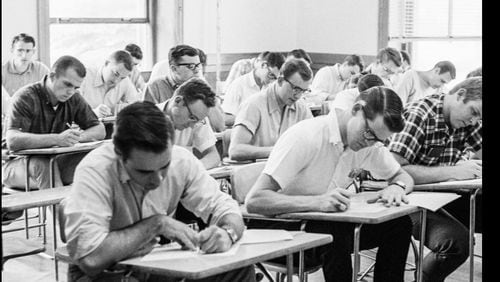A professor in mathematics education is getting pilloried for an essay in which she asserts: “On many levels, mathematics itself operates as Whiteness. Who gets credit for doing and developing mathematics, who is capable in mathematics, and who is seen as part of the mathematical community is generally viewed as White."
The excerpts from an essay by University of Illinois professor Rochelle Gutierrez are sparking the predictable condemnation on social media, such as "This idiot shouldn't be educating anyone."
Her essay was not meant for a general audience, but is part of the anthology "Building Support for Scholarly Practices in Mathematics Methods."
As Campus Reform reports about her essay: (You can find a lot of interesting comments on this article, including from other academics.)
Math also helps actively perpetuate white privilege too, since the way our economy places a premium on math skills gives math a form of "unearned privilege" for math professors, who are disproportionately white.
"Are we really that smart just because we do mathematics?" she asks, further wondering why math professors get more research grants than "social studies or English" professors. Further, she also worries that evaluations of math skills can perpetuate discrimination against minorities, especially if they do worse than their white counterparts.
"If one is not viewed as mathematical, there will always be a sense of inferiority that can be summoned," she says, adding that there are so many minorities who "have experienced microaggressions from participating in math classrooms… [where people are] judged by whether they can reason abstractly."
I attended a conference this week in Orlando for teachers in Project Lead the Way, a nonprofit that develops engineering, computer science and biomedical curricula for schools and helps them improve and enhance k-12 science education. I observed several sessions on classroom practice, including one on how to ask questions that further learning.
The misperception remains that teaching means putting a smart person on front of room to fill children's heads with content. But effective teaching is far more complicated and entails knowing many other things, including what's already in children's heads. And that increasingly requires understanding perceptions and biases that might prevent students from learning the content or believing they are even capable of learning it.
There was a standing-room-only session on the gender gap in engineering classes, in which teachers talked about the need to recognize the subtle cultural messages that tell girls engineering is something boys do. Teachers said they ran into that belief even among girls who excel at math and science.
I am not sure why discussing how students of color may not see themselves as mathematicians because of cultural messages is met with such hostility. According to her college profile: "Dr. Gutierrez' scholarship focuses on equity issues in mathematics education, paying particular attention to how race, class, and language affect teaching and learning. Through in-depth analyses of effective teaching/learning communities and longitudinal studies of developing and practicing teachers, her work challenges deficit views of Latina/o and black students and suggests that mathematics teachers need to be prepared with much more than just content knowledge, pedagogical knowledge, or knowledge of diverse students if they are going to be successful."
So, for balance, here is a video I watched of Gutierrez presenting her research to other educators, As is always the case with the viral outrage du jour, there is more to her research than those controversial little snippets provoking the viral smackdown.







